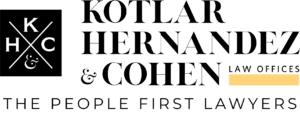Many workers exposed to excessive heat each year become ill due to heat stroke and other heat-related illnesses, particularly during the summer. Some of these heat illnesses are fatal. Although work-related injuries or illnesses caused by high temperatures may hit the construction industry the hardest, the truth is that every worker is at risk. Fortunately, heat-related injuries and illnesses can be prevented.
Many factors can cause heat-related illnesses in workers; they do not necessarily have to work outdoors in the elements. Factory and restaurant workers are just as susceptible to hazardous heat exposure as landscapers and construction workers. For workers who may be exposed to such conditions, they and their fellow employees must know the signs of heat stroke and other illnesses to minimize the heat’s harmful effects.
When the body is physically active or in a hot environment, it needs to release excess heat to maintain a healthy internal temperature. This is called heat dissipation, and it happens naturally through bodily functions, like sweating. If the body cannot regulate its internal temperature and it rises uncontrollably, heat-related illnesses, such as cramping, heat exhaustion, or heat stroke, start to happen.
Employers and workers must work together to keep safe when the temperatures rise in summer. It is essential to recognize the signs of a heat-related illness and get medical attention immediately. Some common heat-related illnesses include the following.
Heat Exhaustion
Heat exhaustion occurs when your body overheats and cannot cool itself down. It usually happens during physical activity in hot weather. Symptoms of heat exhaustion include:
- Weakness.
- Fatigue.
- Excessive sweating.
- Confusion.
- Muscle cramps.
- Dizziness.
Heat Stroke
The most serious of all heat-related illnesses, heat stroke happens when the body loses the ability to control its temperature and also the ability to sweat. Because it cannot sweat, the body is unable to cool down. The body’s temperature can go up to 104 degrees Fahrenheit in minutes. There are many symptoms of heat stroke, including the following:
- High body temperature.
- Headache.
- Nausea.
- Vomiting.
- Red, hot, or dry skin.
- Increased or irregular heart rate.
- Muscle cramps.
- Confusion or disorientation.
- Pale skin color.
- Seizures.
- Fainting or dizziness.
- Weakness.
Heat Rash
Heat rash is caused by excessive sweating and can be very uncomfortable. Symptoms include small blisters or reddish pimples usually forming on the neck, chest, and/or groin area.
Heat Cramps
Caused by excessive sweating, heat cramps are very painful and occur throughout the body’s muscles when they are low on salt. Symptoms of heat cramps are muscle pains and spasms in the arms, legs, and/or abdomen.
How Can Workers Stay Safe in the Summer Heat?
Recognizing the symptoms of heat-related illnesses is vital in staying safe in the heat, but prevention is just as important. Here are a few safety tips:
- Heat acclimatization: One of the best ways to prevent heat stroke and other heat-related illnesses is acclimatization. Acclimatization occurs as the body adapts to extreme heat conditions, such as more efficient sweating. To acclimatize, employers should gradually increase workers’ time in the heat over one or two weeks. Newer workers should not be in the hot conditions for more than 20 percent of the workday while increasing another 20 percent daily. Workers with experience should not be in the heat more than 50 percent of the day. It is important to note that breaks should still be taken and will not affect acclimatization, and those who are not physically fit may need more time to acclimatize.
- Rest and rehydrate: Employers should encourage employees to take rest breaks and hydrate often. Unacclimatized workers should have lighter workloads and longer and more frequent breaks. Workers should rest in the shade or an air-conditioned room when necessary. Water needs to be safe to drink and accessible whenever possible. Workers should know the appropriate amount of water to drink: one cup of water every 15 to 20 minutes if performing moderate work under two hours. Avoid alcohol, coffee, tea, and other caffeinated beverages.
- Protective equipment and clothing: Employers should supply their workers with clothing and equipment that protects them from the hot summer conditions, such as water-cooled or ice-cooled garments, hats, and sunglasses that block the sun’s rays, or reflective aprons and suits. Workers are also encouraged to wear appropriate sunscreen and light-colored, lightweight, loose clothing to allow good airflow.
- Familiarize: All workers should familiarize themselves with heat-related illnesses and be trained to recognize their symptoms in themselves and their coworkers. Workers should be trained to immediately notify their supervisor or manager and seek medical attention when they believe they have a heat illness. Workers can also implement a buddy system where they pay attention to possible symptoms in each other and call 911 if a supervisor is not available.
Employers must provide a safe working environment for their workers, especially if their industry requires outdoor work. Long-term exposure to hot conditions is dangerous, leading to illnesses, injury, and sometimes death.
Conditions outdoors can rapidly change significantly during the summer months, so employers must be prepared to prevent heat illnesses with on-site monitoring. Workers should be trained to recognize heat illnesses and report any issues they cannot monitor on-site. If they are injured at work, they are eligible to file a Workers’ Compensation claim.
New Jersey Workers’ Compensation Lawyers at Kotlar, Hernandez & Cohen, LLC Help Workers Suffering From Heat-Related Work Illnesses
The hottest days of the year are upon us, and employees must stay safe. If you have been injured at work and need help with your claim, contact one of our New Jersey Workers’ Compensation lawyers at Kotlar, Hernandez & Cohen, LLC right away. Call us at 856-751-7676 or fill out our online form for a free consultation. We proudly serve clients across Pennsylvania and New Jersey from our offices in Mount Laurel, Cherry Hill, Trenton, Vineland, New Jersey, and Trevose, Pennsylvania.


